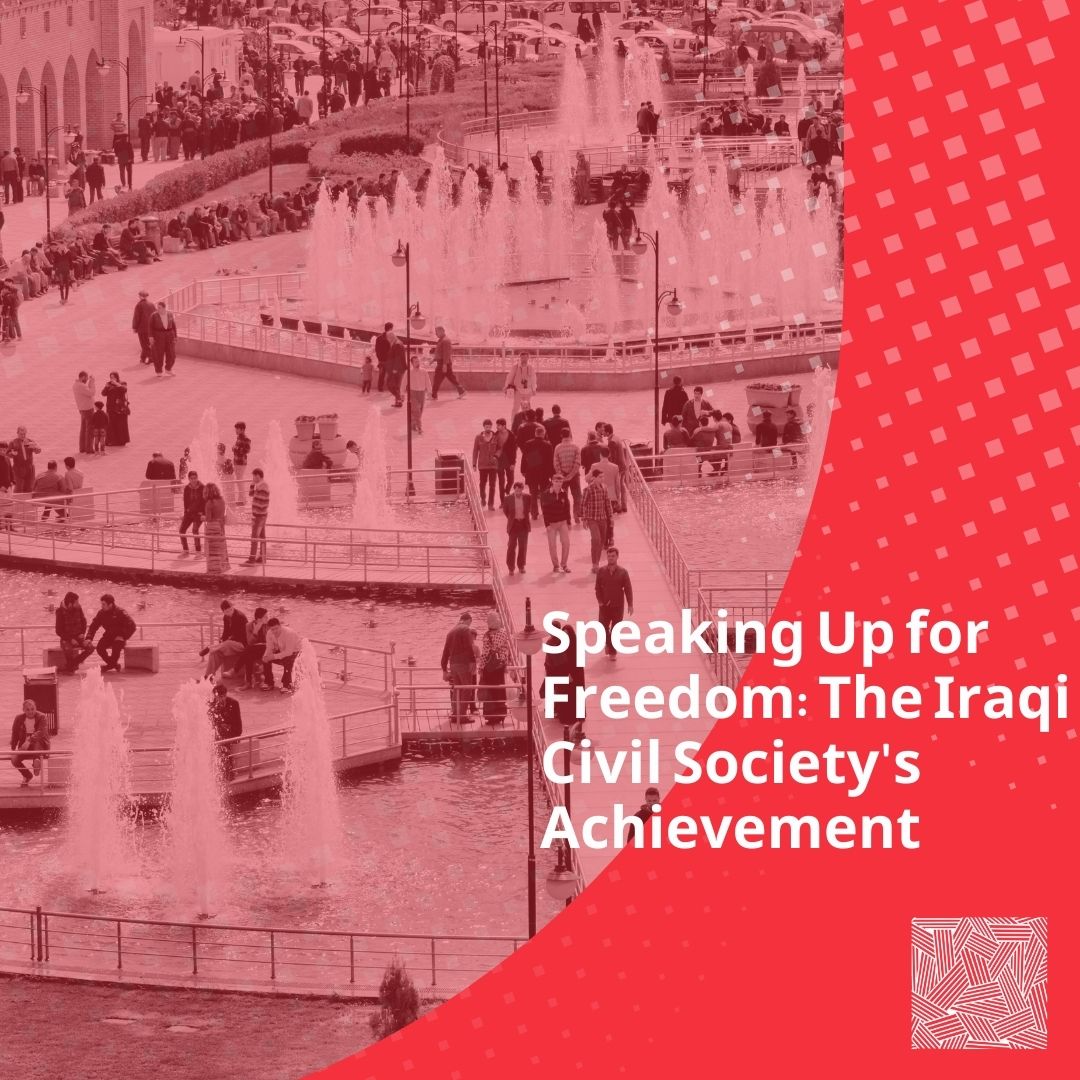
In a victory over legal restrictions, Iraqi civil society organizations joined forces in a dynamic campaign from September to October 2023, to stand up to potential restrictions on freedom of expression. At the forefront of their efforts was a critical examination of the draft Iraqi Freedom of Expression and Peaceful Assembly Law, a legislative proposal that raised concerns about the decline of basic human rights.
This collaborative campaign, driven by SAMA Organization for Psychological and Social Support, in collaboration with Al-Nidal Association for Human Rights, became an example of resistance. As part of Innovation for Change MENA Hub activities in partnership with the Gulf Centre for Human Rights (GCHR), the campaign strategically employed policy papers and recommendations to advocate for change.
The draft law, under discussion in the Iraqi Parliament in March 2023, raised fears of severe limitations on public freedoms and potential misinterpretations that could curtail individual and societal rights. Articles 1, 3, 5, 7, and 13, in particular, rang alarm bells among activists, hinting at potential restrictions on the fundamental rights of Iraqi citizens, placing their freedom of speech and participation in demonstrations at risk.
In response to these concerns, the campaign partners organized a nationwide effort to amend the draft law on freedom of expression. A crucial meeting on October 10, 2023, brought together key stakeholders, including the Parliamentary Development Institute, the Iraqi Women Network, and the Iraqi Human Rights Committee at the Iraqi Parliament. Saad Fayyad, Director General of the Parliamentary Development Institute, underscored the importance of adopting national legislation related to freedom of expression to align with international legal standards.
During the workshop, the Iraqi Human Rights Committee presented the latest developments related to the draft law, while civil society organizations, including Al-Nidal Organization for Human Rights and the Iraqi Women’s Network, presented recommendations for enacting the law. This collaborative effort underscored the influential role civil society can play in shaping legislative change.
One of the campaign’s notable achievements was the formation of partnerships between various organizations and networks dedicated to amending the draft law. The timing of the campaign matched the needs of Iraqi society, and continuous coordination with decision-makers and effective communication with relevant institutions significantly increased the likelihood of amending the draft law to address basic human rights considerations.
This achievement is a testament to the transformative power of collective action in protecting fundamental human rights from legislative threats. It highlights the critical role citizens play in shaping the legal landscape and sends the message that people’s voices cannot be ignored. The campaign’s success serves as a powerful reminder that concerted efforts can lead to real change, even in the face of legal challenges and the closure of civic spaces.